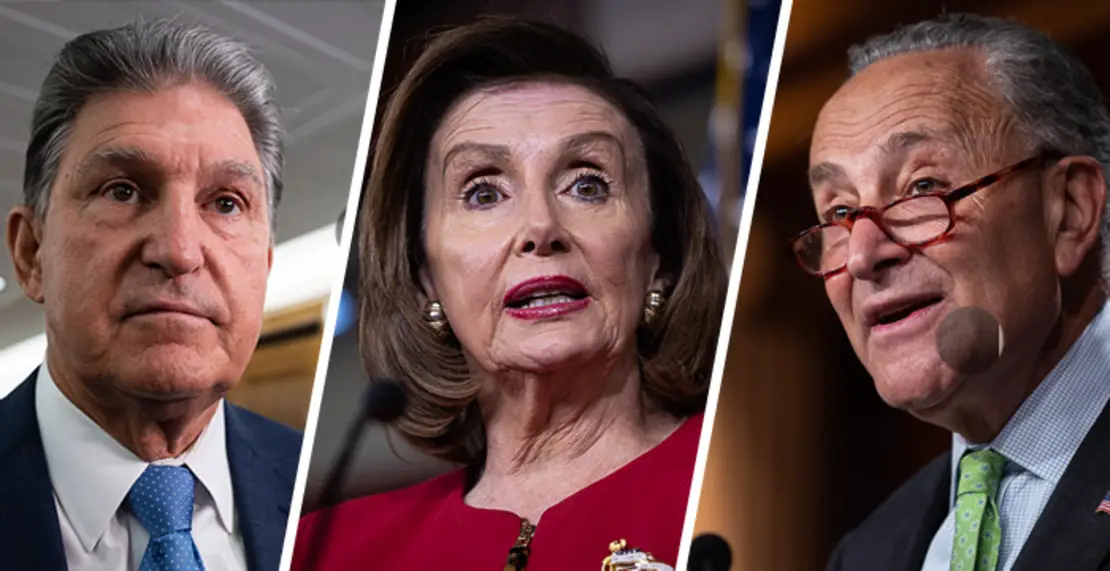With news last week that Sen. Joe Manchin was effectively a “No” on the current version of Biden’s Build Back Better agenda, it looked as if Democrats were about to give up on the President’s domestic spending agenda. After all, the bill was rated to add trillions of dollars to the deficit over the next decade and pile on more obligations that the government simply cannot afford to pay ever under the rosiest of circumstances.
However, Democrats are now pledging to pass something called “Build Back Better,” even if it means eventually ditching large portions of the climate and social spending plan to give the President some kind of victory.
At least one Senator is not convinced the bill is entirely dead, but it will need a team of political doctors to revive it:
Sen. Ben Cardin said Sunday he’s not convinced that the Democrats’ Build Back Better legislation is dead.
“There is unanimity in our caucus that we want to get a bill to the president, and we are working to see what that bill will contain. President Biden is directly involved in these negotiations,” the Maryland Democrat said on “Fox News Sunday.”
Cardin said he saw hope for the megabill to be resurrected in 2022 even after the statement last Sunday by Sen. Joe Manchin (D-W.Va.) that he would not vote for it. Without Manchin’s vote — and with all 50 Senate Republicans lined up against it — Democrats have no way to get to 50 votes. Nevertheless, Senate Majority Leader Chuck Schumer sent out a letter last week saying there will be a vote on the bill.
Manchin already offered his thoughts and said he could not move forward with the bill under the current circumstances. The question for Cardin, Schumer, and others, is what does Manchin need in order to vote for something called Build Back Better?
The solution might be breaking the bill apart into smaller packages and individual parts that might pass with Manchin’s support. It even appears some Republican Senators could be open to various aspects of the bill if it was taken in smaller bites:
Cardin said Democrats are open to potentially passing some parts of the bill as standalone items.
“That’s a strategy decision that’s being negotiated. We are open to a way to reach the finish line,” Cardin said.
Speaking on the same show, Sen. Roy Blunt (R-Mo.) made it clear that he still opposed the overall package, but said he assumed there were things in the bill that he could support as standalone items, citing an initiative he had been working on with Sen. Debbie Stabenow (D-Mich.).
“Surely there is something in there that I would be for, Sen. Stabenow and I have worked for years to try to see that we treat mental health like all other health. That’s a relatively small item in this bill. I think it’s in there, but that’s an item if we put on the floor by itself, Republicans and Democrats would vote for,” Blunt said.
There really isn’t any other option with Manchin, and the entire Republican caucus dug in on opposing the Build Back Better agenda as it stands now.
Quite frankly, they should be opposing it, and anything else that comes out of it, too. The country can’t afford it, which is why Manchin has put up some strong opposition. Beyond the inflationary concerns for Manchin, however, is the climate change portions of the bill which will hit states like West Virginia harder than most in terms of coal production.
From what it looks like, Manchin will eventually win on his demands to cut the size down exponentially and gut most of the frivolous liberal pet projects in the bill:
Democratic lawmakers, lobbyists and experts at think tanks believe Manchin might be won over if the bill is revised to include fewer programs for a longer period of time.
“That is the way forward here,” said Ben Ritz, director of the Center for Funding America’s Future at the Progressive Policy Institute, who has advocated for a bill with fewer items.
“Most of the party is starting to come around to that,” Ritz added.
Some Democrats think their party made a mistake in going too large in the first place.
Congressional Democrats are determined to give Biden, and themselves, some kind of legislative victory heading into the 2022 midterms. The kamikaze mission seems over, as Manchin wouldn’t join the “drive it off the cliff” mentality to pass something huge with the expectation that Democrats would lose next year no matter what happens.
The result will be some kind of small legislative victories, though nothing near what the House Democratic progressive caucus originally wanted with over $6 trillion in spending.
The negotiations will start again hard in January, perhaps mostly from scratch to cobble together something that can pass both chambers and move forward in the early months of 2022. Democrats lost enough time, however, that their playing field is now shorter and more challenging heading into the election year.
If you’re keeping score at home, that’s Manchin 1, Biden 0.
Donate Now to Support Election Central
- Help defend independent journalism
- Directly support this website and our efforts
